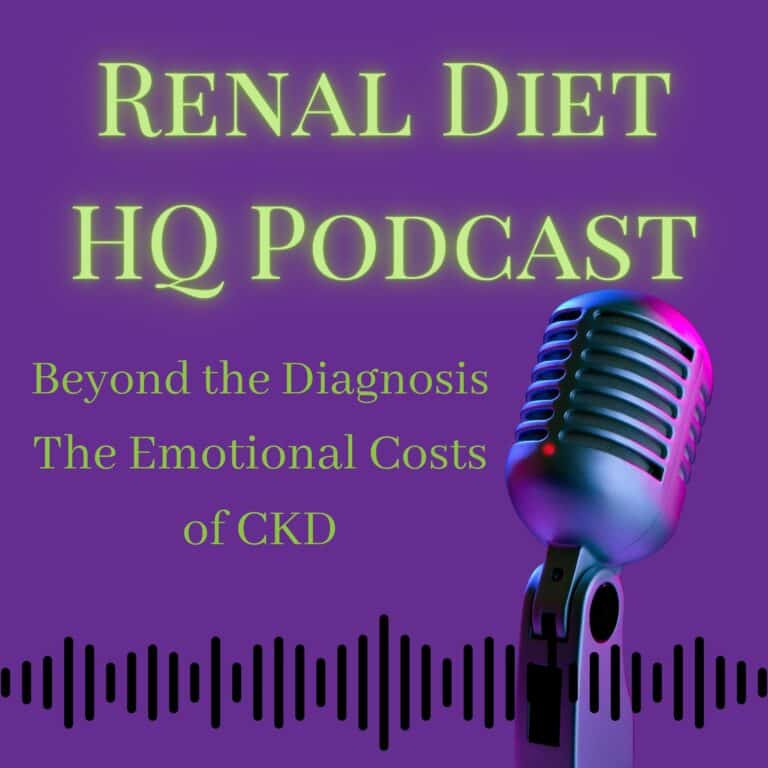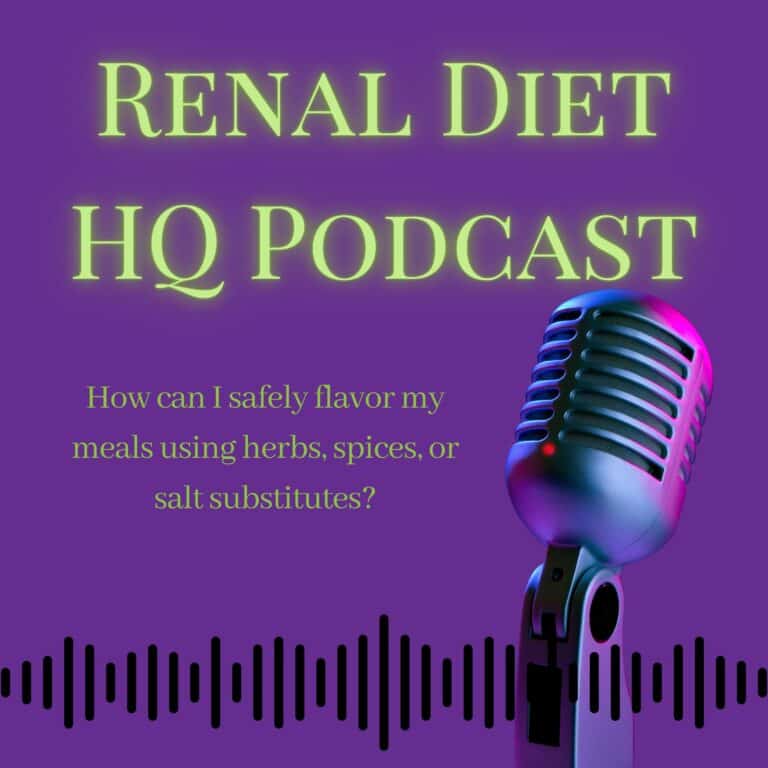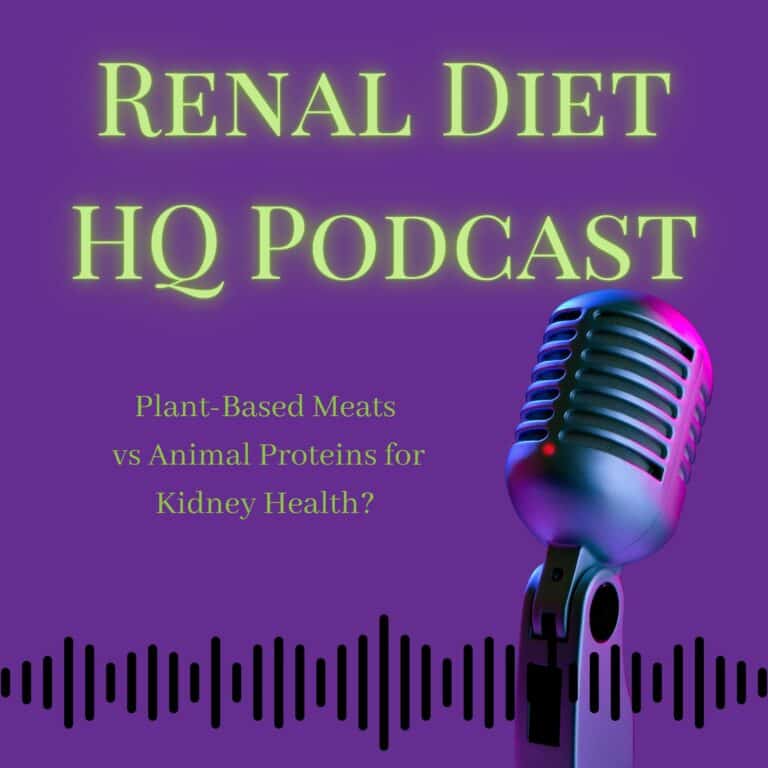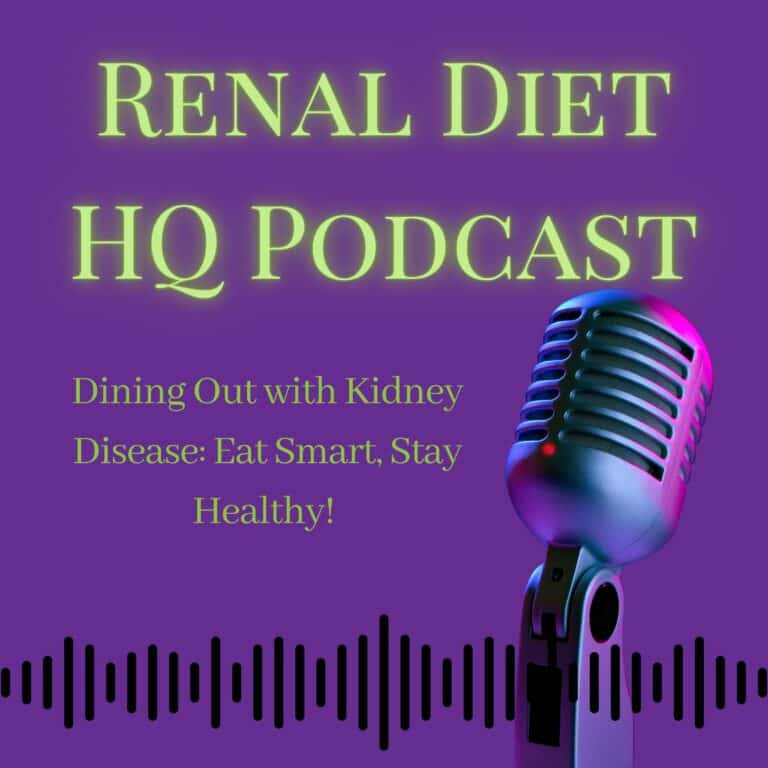What I Wish I Knew Earlier: The Impact Of Dietary Changes in CKD-Podcast
Podcast: Play in new window | Download

Hello and welcome! I’m Mathea Ford, a registered dietitian specializing in kidney health. In my practice, I frequently hear a common regret from my patients with chronic kidney disease (CKD): not understanding the impact of dietary changes sooner. Today, let’s explore why this knowledge is so crucial and how making informed dietary choices can transform your kidney health.
For More Recipes and Ideas --->> Get Your Free Meals and Recipes That Are Perfect for Pre-Dialysis Diets, Pre-Dialysis with Diabetes, or Dialysis Diets.
Understanding the Role of Diet in Kidney Health
The Importance of Dietary Knowledge
Diet plays a pivotal role in managing CKD and can significantly slow its progression. Many patients are surprised to learn just how profoundly diet affects kidney function. Understanding these effects is essential for making changes that can improve your health and well-being.
Key Dietary Considerations for CKD Management
- Sodium
- High sodium intake is known to increase blood pressure, which puts extra strain on your kidneys. Reducing sodium is crucial. Start by putting down the salt shaker and be mindful of processed foods, which often contain hidden salts. By cutting down on sodium, you’re taking a vital step towards protecting your kidneys.
- Protein
- Protein is essential for your body, but consuming too much can burden your kidneys. To manage your intake, focus on plant-based proteins and lean meats, and be conscious of portion sizes. This balanced approach helps reduce the strain on your kidneys while still providing necessary nutrients.
- Potassium
- Potassium is another important mineral to watch, especially in the later stages of CKD. High potassium levels can be harmful, so it’s important to monitor your intake of potassium-rich foods such as certain dairy products and bananas. Moderation is key to maintaining a healthy balance.
- Fluid Intake
- Managing fluid intake is crucial, depending on the stage of CKD. Some individuals need to limit fluids, while others should ensure they stay well-hydrated. Finding the right balance tailored to your specific needs can help you maintain optimal kidney function and overall health.
Creating a Balanced Kidney-Friendly Diet
Beyond Restrictions
Adopting a kidney-friendly diet isn’t just about restrictions—it’s about finding a balance that supports your health. Many of my patients have found that these dietary changes not only improve their kidney function but also enhance their overall well-being. Creating a diet that works for you can lead to significant improvements in your quality of life.
Practical Tips for CKD Patients
Starting the Conversation
If you’re living with CKD or at risk, start a conversation about diet with your healthcare team. Small changes can make a big difference in managing your condition. Remember, your diet doesn’t just feed you—it treats you.
Additional Resources
For more guidance, visit Renal Diet HQ for meal plans designed specifically for CKD patients. Our resources can help you enjoy a variety of foods while maintaining a balanced diet.
Taking control of your diet is a powerful step in managing your kidney health. Don’t just follow a list of dietary restrictions—learn more about what foods are beneficial for you. I’d love to hear from you! Share in the comments below what you wish you had known sooner about chronic kidney disease.
Thank you for joining me on this journey towards better kidney health. Remember, making informed dietary choices can have a profound impact on your life.
Learn More About: https://www.renaldiethq.com/the-lifeline-of-ckd-management-the-power-of-regular-check-ups-podcast/
Learn more about Why a Pre-Dialysis Diet is Vital for Managing CKD | Mathea Ford, RDN Explains










